In an era dominated by digital advancements, cybersecurity emerges as a critical concern, paralleled only by the rapid evolution of cyber threats. Amidst this digital turmoil, blockchain technology shines as a beacon of innovation and security. Initially renowned for its association with cryptocurrencies like Bitcoin, blockchain’s utility has expanded far beyond financial transactions. This technology now promises to revolutionise cybersecurity, offering robust defences against a myriad of cyber threats. In this comprehensive exploration, we delve into how blockchain technology can be leveraged to fortify cybersecurity across diverse applications, moving well beyond its initial hype.
Blockchain technology in Cybersecurity
Blockchain technology, at its essence, is a distributed ledger that records transactions across several computers in such a way that the records cannot be altered retroactively. This fundamental characteristic of blockchain paves the way for unprecedented levels of transparency, security, and trust, making it a cornerstone for cybersecurity initiatives.
Transformative Features for Cybersecurity:
- Decentralisation: By removing centralised points of failure, blockchain drastically reduces vulnerabilities to cyberattacks, making systems more resilient.
- Immutability: The near impossibility of altering recorded data ensures unparalleled data integrity, crucial in combating fraud and unauthorised data manipulation.
- Transparency and Trust: With every participant having access to a consistent version of the ledger, blockchain fosters a transparent environment where trust is built intrinsically.
- Advanced Cryptography: Employing sophisticated cryptographic techniques, blockchain ensures data is securely encrypted, making it virtually tamper-proof.
Applications of Blockchain in Enhancing Cybersecurity
Revolutionising Digital Identity Management
Digital identities are central to online security yet remain one of the weakest links due to prevalent identity theft and fraud. Blockchain offers a groundbreaking approach to digital identity management. By enabling users to control their digital identities through secure and immutable digital keys, blockchain minimises reliance on potentially vulnerable central authorities, thereby curtailing the risk of identity theft significantly.
Bolstering Data Integrity
The threat of data breaches looms large over organisations, making data integrity a top priority. Blockchain’s inherent immutability means that once data is entered into the ledger, it is set in stone. This characteristic is invaluable for sectors like healthcare and finance, where maintaining the sanctity of data is of utmost importance.
Securing the Internet of Things (IoT)
As the IoT continues to weave itself into the fabric of daily life, securing the vast network of interconnected devices becomes imperative. Blockchain can provide a secure and decentralised framework for IoT networks, significantly mitigating the risks associated with these devices, from unauthorised access to data tampering.
Transparent Supply Chains
Supply chains are often riddled with inefficiencies, opacity, and fraud. Blockchain technology can transform supply chain management by offering a transparent, unchangeable record of transactions. This transparency ensures the authenticity and safety of products from their origin to the end consumer, building trust across the supply chain.
Beyond the Hype: Realising Blockchain’s Potential
The enthusiasm surrounding blockchain’s potential in cybersecurity is well-founded, yet it is crucial to approach its implementation with a balanced perspective. Challenges such as scalability, integration complexity, and the need for supportive regulatory frameworks must be addressed to fully harness the benefits of blockchain technology.
The Path Forward
Blockchain’s promise in cybersecurity is immense, offering secure, transparent, and immutable solutions for a range of cyber challenges. The journey from hype to widespread adoption involves overcoming technical and regulatory barriers, fostering collaboration, and driving innovation.
Further Exploration
For those keen to dive deeper into blockchain’s implications for cybersecurity, the following resources are invaluable:
- “Blockchain Revolution” by Don Tapscott and Alex Tapscott: A seminal work exploring the wide-reaching implications of blockchain technology.
- “The Basics of Bitcoins and Blockchains” by Antony Lewis: A primer on the foundational concepts of cryptocurrencies and blockchain technology.














